Afghanistan - The stage of Game of Thrones?
(Baonghean) - Rocket fire interrupted the inauguration ceremony of the Afghan President earlier this week. His victory for a second term was overshadowed by the move of his political rival, who simultaneously declared his leadership role, right before crucial peace talks with the Taliban.
Parallel government
According to AFP, the bitter feud between Mr. Ghani and his former top executive, Abdullah Abdullah, has created new concerns about Afghanistan's fragile democracy, especially as the United States announced it would begin withdrawing troops under a deal signed last month with Taliban insurgents.
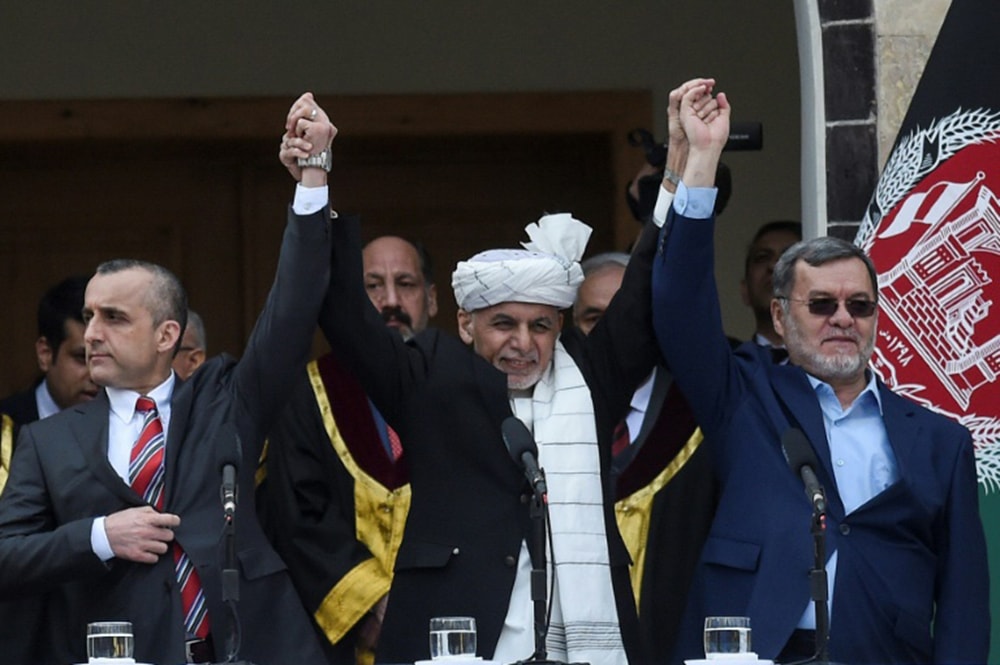 |
| Mr Ghani held hands with his vice presidents during the inauguration ceremony, just minutes before his political rival Abdullah also proclaimed himself president. Photo: AFP |
Elections were held last September, but repeated delays and allegations of widespread voter fraud meant that Mr Ghani, the incumbent leader, was only declared the narrow winner in February. That sparked an angry response from his political rival Abdullah, who said he would form a parallel government.
And this pledge was realized by Abdullah on March 9. That day, Mr. Ghani, dressed in traditional Afghan dress and a white turban, went to the presidential palace to begin the inauguration ceremony. He was surrounded by a crowd of supporters, high-ranking political figures and many foreign dignitaries, including US special envoy Zalmay Khalilzad and General Scott Miller, head of US forces in Afghanistan. Just a few minutes later, in another corner of the complex, Mr. Abdullah, wearing a neat suit, proclaimed himself president, vowing to “protect the independence, national sovereignty, and territorial integrity” of Afghanistan.
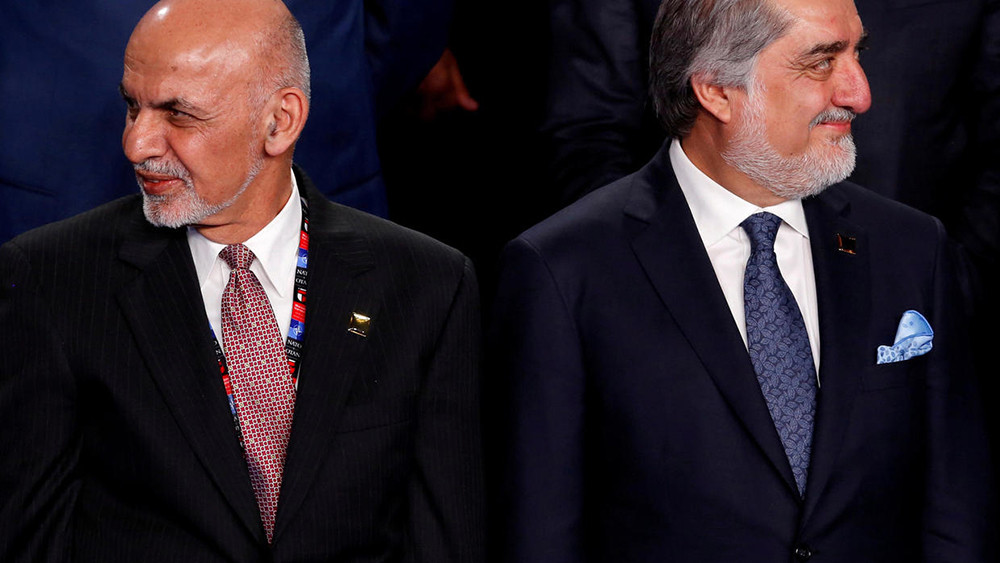 |
| President Ashraf Ghani and political rival Abdullah Abdullah were sworn in as President. Photo: Reuters |
As hundreds of people watched Mr. Ghani’s inauguration, at least two large explosions occurred, sending some people rushing to escape. The country’s interior minister later said that four rockets were aimed at the center of Kabul, one of which hit the fence surrounding the luxury Serena Hotel near the presidential palace. A police officer was slightly injured, and the self-proclaimed Islamic State (IS) group claimed responsibility for the explosions, echoing a similar attack on Mr. Ghani’s speech in August 2018 that injured six civilians.
As the sirens blared, Mr. Ghani was heard telling those who remained behind: “I am not wearing a bulletproof vest, I am only wearing this shirt. I will stay here even if it means sacrificing my life.” After Mr. Ghani refused to leave the podium and received applause and praise, many of those who had fled returned to their seats and continued the ceremony.
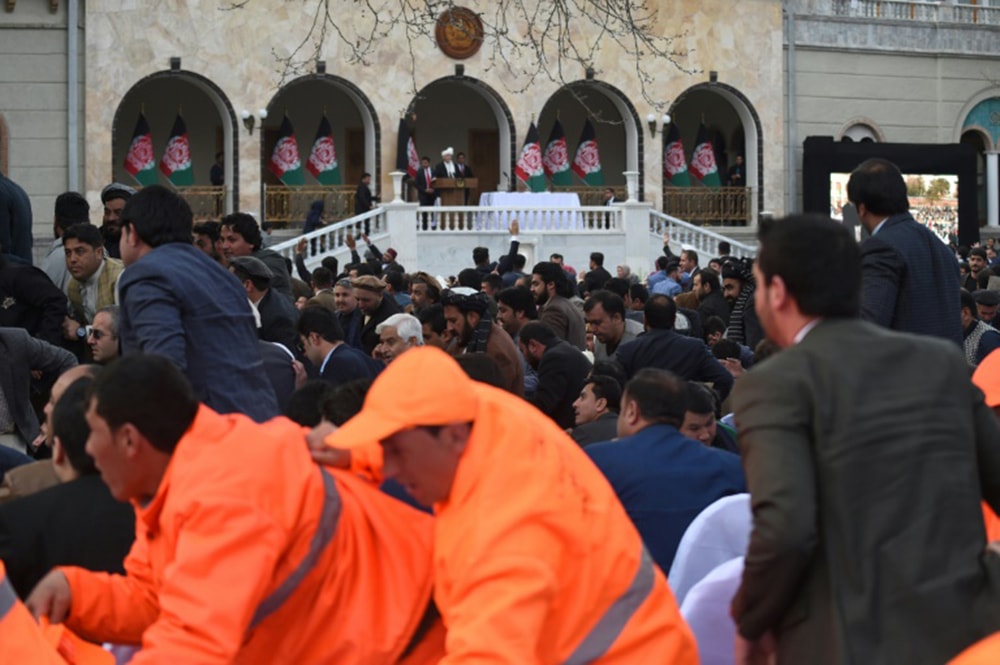 |
| Officials and guests react after hearing a loud explosion during President Ghani's inauguration. Photo: AFP |
Game of Thrones
Western media commented that the game of thrones between Mr. Ghani and Mr. Abdullah has stretched the patience of the international community as well as the Afghan people. Although US Secretary of State Mike Pompeo did not congratulate Mr. Ghani on his inauguration, he strongly condemned Mr. Abdullah's move to form a parallel government and urged the leadership in Kabul to unite for the goal of achieving peace with the Taliban. In a statement without mentioning Abdullah by name, Mr. Pompeo said: "We strongly oppose any action to establish a parallel government, and any use of force to resolve political disagreements."
Just hours after the inauguration of two political rivals in Afghanistan, the US military announced that it had begun withdrawing troops, in accordance with a previously agreed agreement. Spokesman Sonny Leggett said: "US forces in Afghanistan have begun working on conditions to reduce forces to 8,600 within 135 days," compared to the current threshold of more than 12,000.
According to the agreement signed in Qatar not long ago, all foreign troops will have to withdraw from Afghanistan within 14 months, in exchange for many security commitments from the Taliban and a promise to hold negotiations with Kabul. It is not difficult to see that the deep divisions between Afghan politicians will inadvertently become "leverage", benefiting the insurgents in those negotiations.
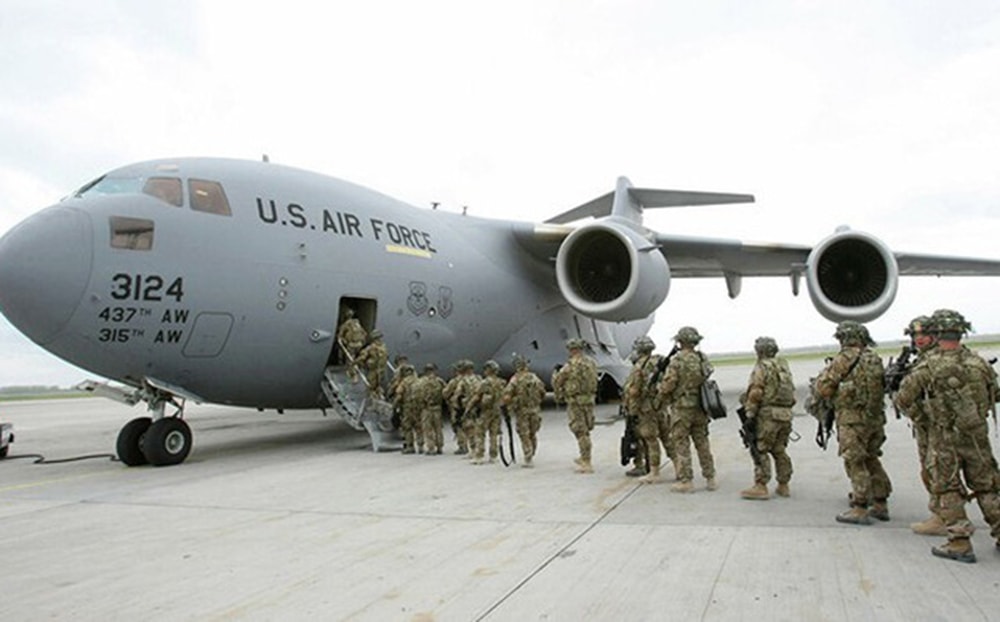 |
| Hundreds of US troops began withdrawing from Afghanistan on March 9. Photo: Sputnik |
The intra-Afghan talks are scheduled to begin on March 10, but Mr. Ghani’s government has yet to release any details about the negotiating team or when they will begin. On March 9, he only revealed that he would send a separate team to negotiate with the Taliban: “One of the first priorities of our government will be to create political consensus and appoint a negotiating team.”
In his inaugural address earlier this week, President Ghani appeared to be trying to send a message to his opponents, saying: “Today is a day for unity. We must think about the future. I call on my past political opponents to give me a hand and stand shoulder to shoulder to serve this country. Our mission is peace and to end 40 years of war.”
The reality, however, is not so easy, as Afghans have shown little enthusiasm for politicians like Abdullah and Ghani or the electoral process in general, as evidenced by the fact that most of them abstained from voting in last year’s election. Violence has shown no signs of abating, except during a brief week-long partial ceasefire that preceded the US-Taliban deal. In the deadliest attack to hit Afghanistan in weeks, IS militants killed 32 people and wounded dozens at a political rally in Kabul last weekend.
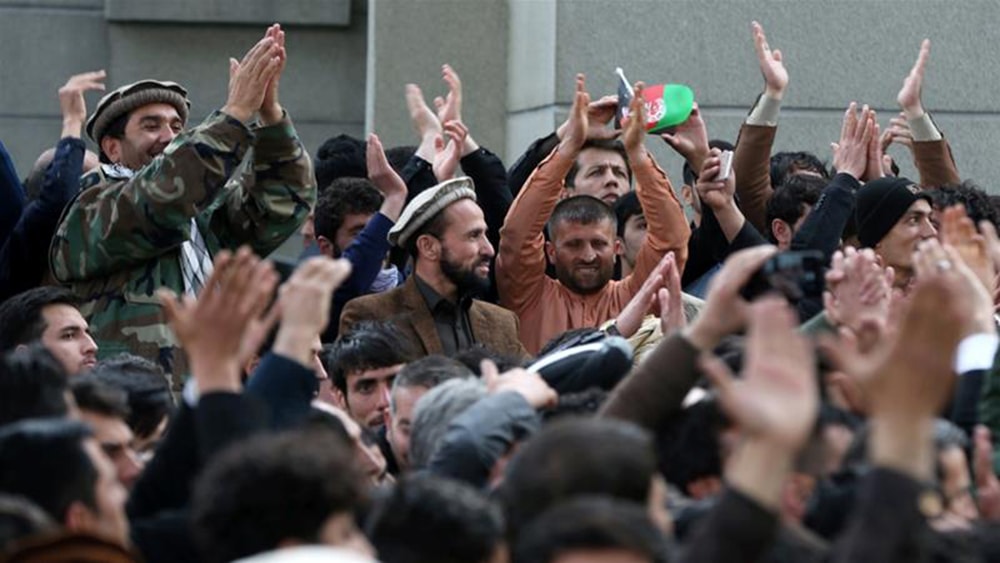 |
| Abdullah's supporters attend the presidential swearing-in ceremony in Kabul. Photo: Reuters |
On the other side of the negotiating table, the Taliban, who view the election process as “fraudulent and foreign-influenced,” have also stepped up attacks on Afghan civilians and forces. They have expressed some of their views on the recent “competition” for the presidency, with their spokesman, Zabihullah Mujahid, saying that the development shows that “for slaves, nothing is more important than their own personal interests.”
It can be said that, in the current context, it would not be too pessimistic to say that the "bloodbath" war in Afghanistan's political arena will likely cost the government dearly. And this is a bad scenario because they have already faced a lot of pressure after being "left out" in the Doha negotiations leading to the US-Taliban agreement.

